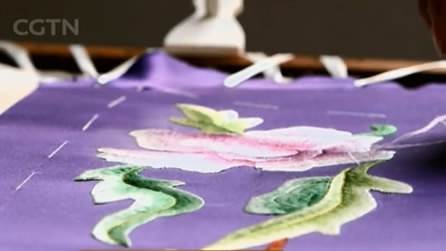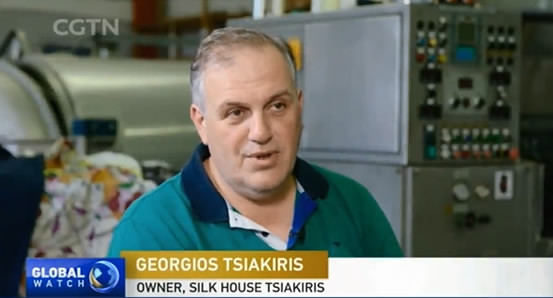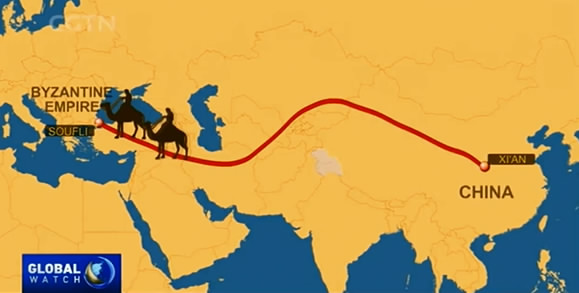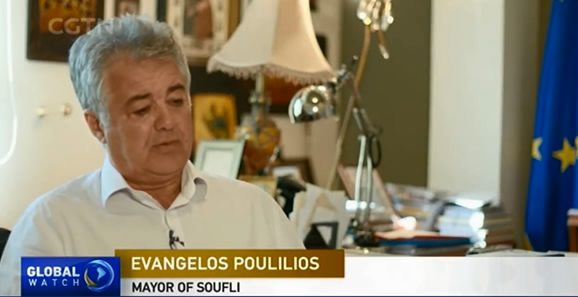
Business
14:25, 13-Jan-2017
Weaving a future: One Greek town spins silk into a fortune
Updated
10:34, 28-Jun-2018

Silk was first developed in ancient China. And centuries later, it found its way into the Greek town of Soufli, where it was manufactured by Europeans. This epic story of trade and travel dates all the way back to the Byzantine Empire.
49-year-old Georgios Tsiakiris has been running a silk factory for 24 years, supplying Europe with dyed and finished fabrics.
But these are not the best of times for the family business. Tsiakiris recalled how 40 workers ran three shifts, 24/7, during the late 1990s. However, production has dropped 80 percent since the 2008 economic crisis, and now only 10 people are left. But he has not given up.
"I've been working all my life on silk production. I don't know how to make anything else. I just know how to make good-quality silk material," said Tsiakiris.

CGTN Photo
CGTN Photo
Silk production originated in China in 2640 BC. China guarded its methods for 3000 years, while the luxurious fabric was sought-after worldwide.
In the sixth century, the Byzantine emperor ordered a mission of industrial espionage, sending two monks to the East to gain China's secrets.

CGTN Photo
CGTN Photo
"They went there, and stole the eggs of silkworms and put them in their canes and brought them to Byzantium," said Athanasios Gouridis, a civil engineer and archaeologist.

CGTN Photo
CGTN Photo
Following the North Silk Road, the monks returned with China's secrets. Silk production then spread throughout the Byzantine Empire.
Soufli, located along the Ancient Silk Road, turned into a center of silk-making, thriving for centuries.
During the modern silk industry's “Golden Age”, from 1919 to 1938, there were four major factories in this town, with nearly 400 professionals running around the clock. Almost the entire 8000-strong population were directly or indirectly involved in the industry.
But with the invention of cheaper synthetic fibers, competition from big silk-producing countries, and the economic crisis, Soufli's industry shrank dramatically. Two factories were closed.
But history moves in cycles - what is old becomes new, including ties with China. To lower costs, factories import silk thread from China. Many silkworm breeders now import eggs from China.
The mayor hopes China's modern silk road will breathe new life into this old tradition.
"We plan to bring investment from other countries, especially China. We want to be part of China's Belt and Road Initiative,” said Evangelos Poulilios, mayor of Soufli.

CGTN Photo
CGTN Photo
Tsiakiris also runs a silk museum.
The old equipment holds memories of the rise and fall of Soufli's silk industry. The machines hold little charm for young people - many have left for opportunities elsewhere. But Tsiakiris's son remains.
“You feel proud your family is carrying on this tradition for local areas. You feel proud they are carrying on the tradition that lasted for centuries,” said the son.
The young man studies entomology, specializing in silkworms. He hopes to re-energize this old tradition, with new knowledge and techniques.
7626km
(Written by CGTN reporter Wang Hui)

SITEMAP
Copyright © 2018 CGTN. Beijing ICP prepared NO.16065310-3
Copyright © 2018 CGTN. Beijing ICP prepared NO.16065310-3